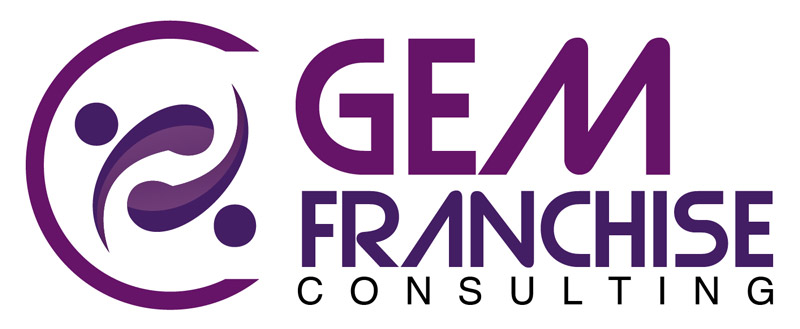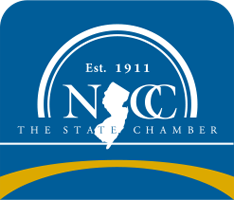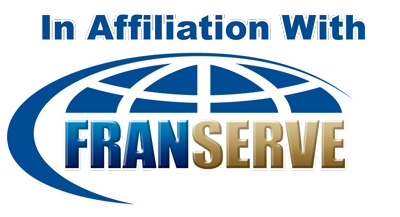Finding Your Perfect Fit
A qualified Franchise Consultant assists others achieve their dreams of business ownership through franchising. Our professional certified consultants work with prospects every day that are in the market for a career change and who desire business ownership opportunities. They assist clients in identifying and exploring ideal franchise opportunities that meet each candidateís professional and personal goals as well as helping them access the capital to own and operate that franchise. They will guide you throughout the entire franchise acquisition process. Not all franchises are created equal. But whether you are a first-time business owner who is passionate about seizing a franchise opportunity or an experienced business owner wanting to diversify, there is a learning curve ahead which your Consultant can assist you in navigating. Before you do anything else, you should identify which of the different types of franchise structures will best suit your strengths, skill-set and needs. Start by looking at the different franchise business models and arrangements in the market to help you pick the right one for you:
Owner/Operator: Being an owner/operator is ideal if you are looking for an immediate career change. With this type of model, you are responsible for the day-to-day operations of the business. This is a good choice if you want to maintain total control over your investment and become immersed in the chosen business. Owner/Operators make all operating decisions, resulting in a greater time commitment overall. The drawback of this is there can be long hours and you are tied to that geographic location. For most this means, giving up your current day job and the financial security net that provides. Startup period may result in no personal income being generated. However, staffing costs would be lower compared to other models because you are the one overseeing the operation management. Knowledge of that particular industryís workings is necessary, as you would be involved in the daily management. Because of the extensive time commitment one unit takes, the number of units you can own is less than other franchise ownership models, limiting your investmentís growth potential. This is a good fit for you if you are detail oriented and like to have control over every aspect of the business and if you are looking for an immediate career change.
Executive: An executive franchise is primarily business to business in nature. Depending on the business model this will mean that your role as a franchisee will see you interacting with senior business decision makers, looking to get them to sign up to your services. The franchisor will equip you with the training and tools to market and sell successfully, after all, it is a proven business system that you are looking to replicate, but in the majority of franchises you are still going to need to sell yourself to a potential client, as well as the business offering. An executive franchise itself can cover many different industry sectors such as consultancy, coaching, financial services, legal services, recruitment, IT and more - but the nature of the business model can vary a lot too. Some are home-based sole-operator franchises; however, you may partner with other franchisees in the system. You may not need to employ staff. Some may require an office space, and staff that you manage. Your Franchise Consultant can help you explore different executive franchises to discover the range of opportunities that exist.
Absentee: This business model is suited for you if you are looking solely for an investment opportunity. The time commitment is minimal as you hire out all functions to operate the unit. You would have little to no involvement in the day-to-day operation. No industry knowledge is needed, as you hire out management. This leads to higher staffing and operation costs. Because the business is operated autonomously, you are able to potentially maintain your current job and commitments. This reduces the risk of a startup period where there can be no personal income generated. You also are not tied to a location geographically, giving you more personal freedom. This model allows for larger scalability because the option for multiple locations is greater. However, you are placing the success of your investment in the hands of people who do not have the same level of investment as you do. You may also have to put up more capital upfront to hire the necessary people to run the daily operations.
Semi-Absentee: This model blends aspects of both owner/operator and executive/absentee model. This model is ideal if you are looking for an additional income to diversify your current income and build equity while keeping your day job. The time commitment is low, requiring only around 10-15 hours per week, meaning you can keep your day job and the security that comes with a steady income. You hire managing staff for the day-to-day operations, and you focus on leading the business strategy and managing the managers. This type of franchise is a good fit for those who are good people managers. No industry knowledge is necessary because you hire managers with the necessary knowledge. Owning multiple locations is a possibility, increasing your investmentís scalability. This franchise model combines the control of an owner/operator model with the time commitment of the executive/absentee model.
Understanding the key benefits of franchise ownership is another key to your evaluation process. Consider the following:
An Existing Franchise Is a Turnkey Business. Many entrepreneurs have the skills to run an existing successful business but donít have expertise in all it takes to get a business up and running, whether that's obtaining financing or negotiating lease terms.
Buying an established franchise in a well-designed system can eliminate much of the hard work: choosing a territory, finding a location, negotiating a lease, finding reliable contractors to complete a build-out on time and on budget, establishing vendor relationships, etc. You may also be able to start a business with trained staff already in place.
However, you will still need to do research working w/your Franchise Consultant. Aside from the transfer fee, your fees and terms may be substantially different than the sellers.
Proven System in Place. When you buy a franchise, you buy a system, an entire method of doing business. Franchises have an established system in place that you must follow to distribute the franchisor's products or services using the franchisor's trade or service marks. Having a proven system already in place eliminates the guesswork and errors a common business owner would normally face.
In addition to exercising some control over franchising operations and the franchisee's adherence to brand guidelines, the franchisor provides the franchisee with franchising leadership and support.
Corporate Image and Brand Awareness. If you buy into a franchise system that is already established, the corporate image and brand awareness is already recognized. Customers are usually more comfortable purchasing items they are familiar w/and working w/companies they already know and trust.
In the consumer's mind, a franchisor's brand equals the company's reputation. Top quality franchisors want to ensure that their customers are satisfied every time they shop at a franchised location and that the franchisee delivers on the franchisor's brand promise.
Higher Likelihood of Success. Buying a franchise is very different from starting a mom-and-pop business. Since there is an already established system in place, there is a higher likelihood of success. If you invest in a proven franchise opportunity and follow the system the franchisor has put in place, you should be on your way to running a successful business.
Easier to Obtain Financing. Lenders are usually very comfortable financing the purchase of a franchise because franchises already have a proven track record. Bankers usually look at successful franchise chains as having a lower risk of repayment default and are more likely to loan money based on that premise. In addition, some franchise systems will provide in-house financing or leasing options. Many systems also offer special discounts for veterans, via the VetFran Program.
Training. Most franchise companies offer a training program that is typically held at their corporate offices, plus additional training that occurs at the actual franchise location before the grand opening. The franchisor will train you to run your franchise the same way their other franchised locations are run. It will ensure that you are running your business efficiently and will help to eliminate any common mistakes a new business owner usually faces.
Ongoing Support. When you buy a franchise, you have the support of the franchisor and the support of knowing you are part of a growing system. You will always be able to pick up the phone and ask questions of the franchisor or even other franchisees. Established franchisors typically also have field staff who can visit your location to provide coaching and consulting if needed.
Marketing. The franchisor typically takes care of handling the system marketing; these costs are covered by an Advertising Fund (sometimes called a Brand Fund). The franchisee is also usually required to spend a certain amount of local marketing. The franchisor should have an outline for you to follow, will supply graphics and marketing material templates, and sometimes will have specific vendors for you to use.
Exclusive Territory. When you buy a franchise, you are usually also buying an exclusive territory, or protected territory, in which to do business. Franchisors only allow a certain number of franchises to be open within a certain geographical region. You will usually be entitled to a certain area, and no other franchises (w/in your franchise system) can be open within that area.
Own Multiple Locations. Being a part of a franchise system can offer you more opportunities to grow within the system. Once you have become a successful single-unit franchise owner, you may have the opportunity to become a multi-unit franchise owner.
Regardless of the type of franchising model or arrangement, there are also two important features that are common across all forms of franchising:
Consistency: a franchisor spends a huge amount of money and time on building and testing systems and processes that work. They then rely on each franchisee to consistently use those systems and processes to keep their customersí experiences the same across all of the franchise stores.
Compliance: as part of the agreement they sign, franchisees are required to comply w/the operating procedures that their franchisor sets. As a result, the system changes that a franchisee can make without the franchisorís agreement may be limited. But, on the up-side, franchisees know the system works (as long as they continue to work the system, at least).
Additionally, each of the franchise business models can be available in one or more of the following arrangements:
Single unit: If youíre a new entrepreneur looking to get your feet wet, this would be the simplest way to start your franchising journey. It is the most common type of franchise, which gives you the rights to open and operate one franchise unit.
Multi-unit: Multi-unit arrangements allow high-performing franchisees the ability to operate multiple units to grow their small business.
Area developer: This type of franchising arrangement typically allows you to operate a greater number of units over a larger territorial area. The benefit is that it restricts other franchisees from opening any units in your territory during the contract term.
Master franchise: A master franchise agreement offers you a great path to building wealth and a residual income source. It gives you more rights than an area development agreement would and allows you to sell franchises to other people (sub-franchisees) within your territory.
Finally, there are 3 types of royalty models. As part of the franchise model, you as a franchisee are responsible for paying an ongoing license or royalty fee to the franchisor. This allows you to use their intellectual property, among other things.
You will usually need to pay this fee monthly or quarterly, and it can be calculated in a few different ways. The following are the three most common royalty models.
The Fixed Dollar Amount: This is the most straightforward of all the franchise royalty models. It means you simply pay a specific amount of money on a regular basis (i.e. $150 per week) to the franchisor. This stays the same, regardless of whether your franchise businessís performance is going great guns or not.
The Fixed Transaction Amount: In this more complicated model, you regularly need to pay a dollar value thatís equivalent to a predetermined number of transactions. For example, the franchisor may determine that your royalty payment will be the equivalent value of ten standard product sales, which you need to pay monthly.
The Fixed Percentage Method: This model is the most common, as it is easy to grasp and good for both you and the franchisor. The royalty amount you need to pay is based on a set percentage of your franchiseís gross sales.
Again, a Franchise Consultant can assist and guide you throughout the entire franchise acquisition process to help ensure your success and allow you to reach your goal/dream of business ownership.
11/16/2021



